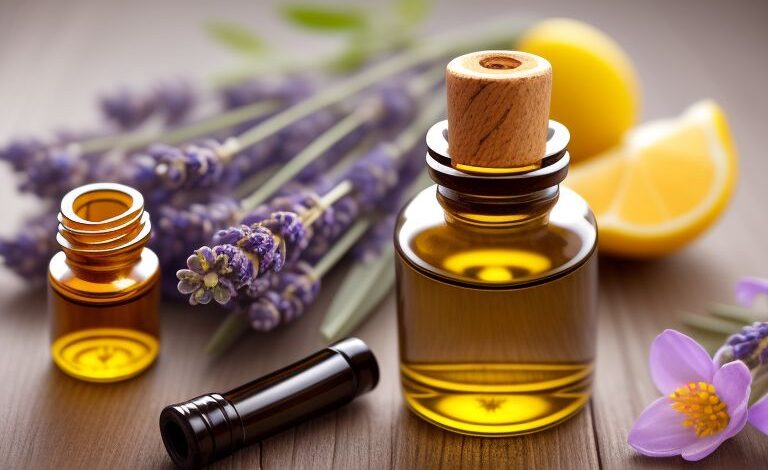Aromatherapy Oil for Depression: A Natural Path to Healing

Feeling down? You're not alone. Depression affects millions of people worldwide, making daily life a struggle. While traditional treatments like medications and therapy are essential, many are exploring alternative options. Enter aromatherapy—a soothing, natural approach that uses the power of essential oils to enhance mood and promote well-being. In this article, we’ll dive into how aromatherapy oils can help alleviate symptoms of depression and improve your mental health.

Understanding Depression
What is Depression?
Depression is more than just feeling sad. It's a serious mental health condition that can affect anyone, regardless of age or background. Major depressive disorder, persistent depressive disorder, and seasonal affective disorder are some common types. Symptoms may include persistent sadness, loss of interest in activities, fatigue, and difficulty concentrating. According to the World Health Organization (WHO), over 264 million people globally experience depression.
Traditional Treatments for Depression
Many people turn to medications like antidepressants or therapies such as cognitive-behavioral therapy (CBT) for treatment. While these can be effective, they often come with side effects and may not work for everyone. This is where alternative therapies, like aromatherapy, come into play, offering a gentle and holistic approach to mental wellness.
What is Aromatherapy?
A Brief History
Aromatherapy has been used for thousands of years, dating back to ancient civilizations like Egypt and China. Essential oils were extracted from plants and used for medicinal and therapeutic purposes. Today, aromatherapy is gaining popularity as a complementary treatment for various conditions, including depression.
How Aromatherapy Works
Aromatherapy relies on the sense of smell. When you inhale essential oils, they interact with the olfactory system, sending signals to the brain’s limbic system—responsible for emotions and memories. This connection explains why certain scents can uplift your mood or promote relaxation.
The Benefits of Aromatherapy for Depression
Research and Studies
Numerous studies suggest that aromatherapy can help reduce symptoms of depression and anxiety. For example, a study published in the Journal of Alternative and Complementary Medicine found that lavender essential oil significantly reduced anxiety levels in participants. Another study showed that bergamot oil had mood-enhancing properties. These findings highlight the potential of aromatherapy as a supportive treatment for mental health.
How Aromatherapy Can Complement Traditional Treatments
Using aromatherapy alongside traditional treatments can enhance overall well-being. It’s essential to consult with healthcare providers before starting any new treatment, but many individuals find that aromatherapy helps to manage symptoms and improve their quality of life.
Essential Oils for Depression
Top Aromatherapy Oils
- Lavender Oil
- Bergamot Oil
- With its refreshing citrus scent, bergamot oil is famous for its mood-lifting properties. Studies have shown that it can help reduce feelings of stress and anxiety, making it a great choice for those struggling with depression.
- Frankincense Oil
- Often used in meditation practices, frankincense oil can create a sense of calm and clarity. It’s believed to reduce feelings of anxiety and promote emotional balance.
- Ylang-Ylang Oil
- This sweet, floral scent has been linked to reduced stress and improved mood. Research suggests that ylang-ylang oil can lower blood pressure and heart rate, promoting a sense of relaxation.
- Cedarwood Oil
- Known for its grounding properties, cedarwood oil can help alleviate feelings of anxiety and promote a sense of peace. It’s often used in meditation and mindfulness practices.
- Lemon Oil
- With its bright, uplifting scent, lemon oil can enhance mood and reduce feelings of depression. Studies have shown that citrus scents can boost serotonin levels, contributing to an overall sense of well-being.
Blending Essential Oils
Creating your own blends can enhance the effects of aromatherapy. Here are a few simple recipes:
- Calming Blend: Mix 3 drops of lavender, 2 drops of cedarwood, and 1 drop of bergamot.
- Uplifting Blend: Combine 3 drops of lemon, 2 drops of ylang-ylang, and 1 drop of frankincense.
How to Use Aromatherapy Oils
Methods of Application
- Diffusers: A popular way to disperse essential oils throughout a room. Just add a few drops of your chosen oil and let the diffuser do the work!
- Inhalation: Put a drop or two on a cotton ball or tissue and inhale deeply. This method is quick and effective for immediate relief.
- Topical Application: Always dilute essential oils with a carrier oil (like coconut or jojoba oil) before applying to the skin to avoid irritation.
- Baths: Adding a few drops of essential oils to a warm bath can create a relaxing experience, perfect for unwinding after a long day.
Safety Precautions
While aromatherapy is generally safe, it’s crucial to take precautions:
- Always dilute essential oils before applying them to the skin.
- Perform a patch test to check for allergic reactions.
- Consult a healthcare professional if you’re pregnant, nursing, or have pre-existing health conditions.
Aromatherapy in Everyday Life
Incorporating Aromatherapy into Your Routine
Making aromatherapy a part of your daily life can enhance its benefits. Here are some tips:
- Morning Routine: Start your day by diffusing lemon or bergamot oil to uplift your mood.
- Workspace: Keep a small diffuser at your desk with calming oils like lavender to reduce stress during the workday.
- Evening Ritual: Create a relaxing bedtime routine with lavender or cedarwood oil to promote better sleep.
Mindfulness and Aromatherapy
Combining mindfulness practices with aromatherapy can amplify the benefits. Try these simple exercises:
- Breathing Technique: Inhale your chosen essential oil while focusing on your breath. Take deep, slow breaths for a few minutes, allowing the scent to calm your mind.
- Meditation: Use calming scents like frankincense during your meditation practice to deepen your experience.
Real-Life Testimonials
Many individuals have found success using aromatherapy to manage their depression. Here are a couple of inspiring stories:
- Sarah, 29: “After struggling with depression for years, I started using lavender oil in my diffuser at night. It helped me relax and improved my sleep quality. I can’t imagine my routine without it now!”
- Michael, 34: “Bergamot oil has been a game-changer for me. I use it at work when I feel overwhelmed, and it lifts my mood instantly. It's a simple yet effective tool in my mental health toolkit.”
Aromatherapy offers a natural and soothing approach to managing depression. With various essential oils available, there’s something for everyone. While aromatherapy should not replace traditional treatments, it can be a valuable complement to your mental health journey. Explore these oils, find what works best for you, and take a step toward a brighter, more balanced life.


